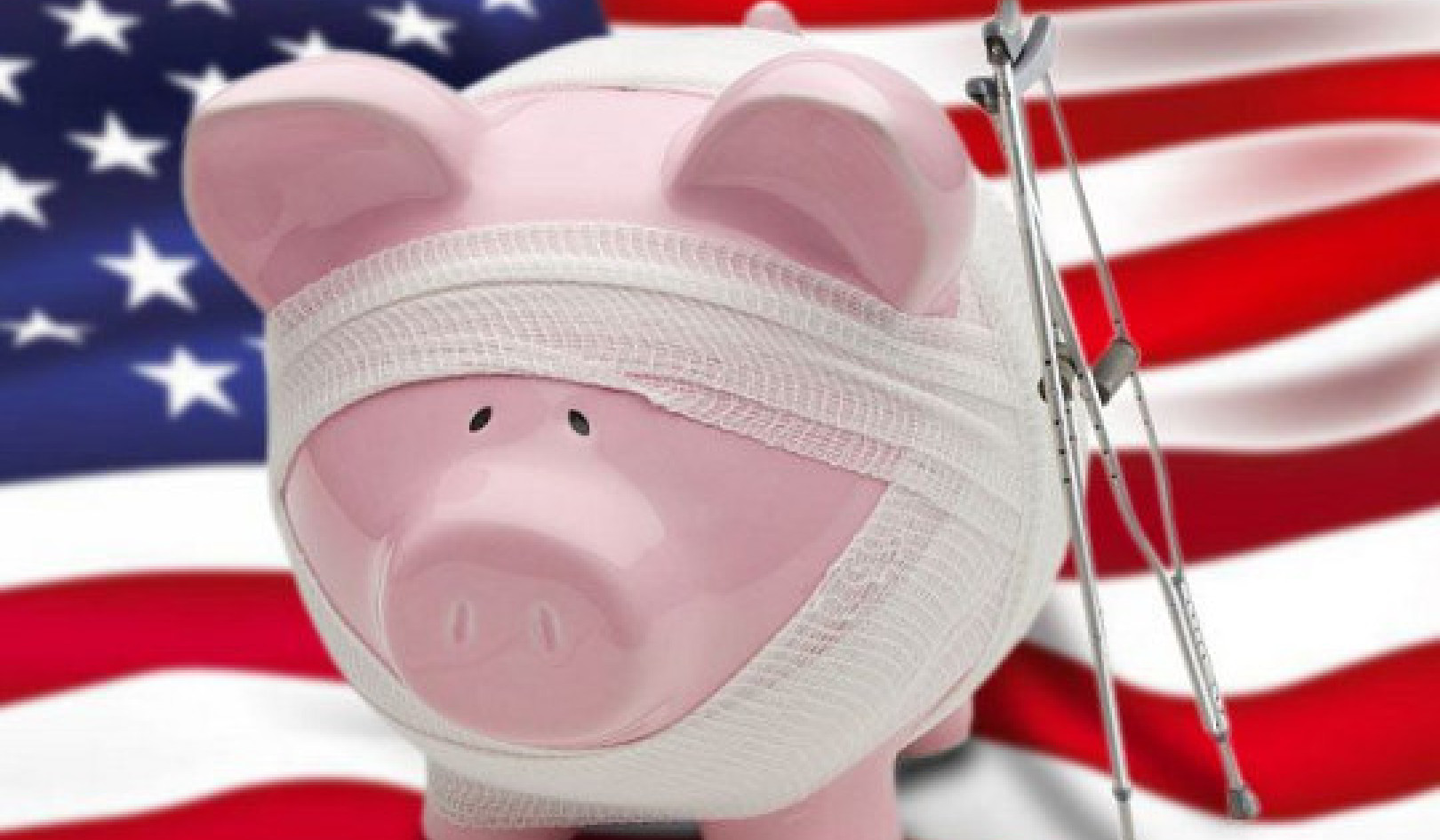
The belief that America is a land of opportunity where hard work pays off used to be a virtual article of faith for most citizens. Work hard and play by the rules, and you can better your life while ensuring a brighter future for the next generation. But today, respect for major U.S. institutions is cratering, especially regarding faith in the economy as a fair and functional system.
According to renowned public policy expert Robert Reich, Americans are waking up to the harsh realities of an economic playing field sharply tilted against them. In a compelling interview, the former Secretary of Labor pulls no punches, laying out his perspective on how unrelenting corporate influence has corrupted politics and rigged the economy.
Reich draws upon decades of navigating the corridors of power to argue that anxiety around the broken "social contract" binding citizens, government, and business isn't mere misplaced nostalgia. Evidence suggests the system increasingly fails to reward hard work while permitting runaway prosperity for elites. This stark imbalance carries dire implications for the country's future direction.
From Shared Prosperity to Staggering Inequality
Reich begins his analysis by contrasting the postwar 1940s-1970s with the present day. Back then, as the country transitioned into a manufacturing and consumer economy, wages rose in tandem across income levels. The working class could also partake in the growing economic pie alongside thriving blue-chip firms.
However, around 1980, prosperity became decoupled from productivity gains made possible by American workers. Whereas corporate profits continued skyrocketing, average wages stagnated. Firm owners and shareholders pocketed an ever-larger portion of financial returns while leaving employees' paychecks behind inflation.
Over 40 years, this slowly unfolding phenomenon concentrated astonishing wealth in fewer and fewer hands. Reich illustrates that the wealthiest 20 Americans now own more than the bottom 50% of the population combined. America entails 5% of the world's population but an unbelievable 25% of global wealth. Yet this private fortune does not trickle back down to benefit society.
From Campaign Finance to Lobbyist Influence
What drove this profound capture of the economy by elites? Reich contends a critical inflection point traces back to the Supreme Court's Citizens United vs FEC ruling in 2010, permitting unrestricted corporate money flows into politics. Striking down previous guardrails profoundly deepened the impact of lobbying aligned with business interests.
In one sobering statistic, Reich notes influence peddlers actually outnumber Congress members by a ratio of 10 to 1 in present-day Washington, D.C. Their nonstop efforts overwhelmingly serve wealthy clients over everyday citizens. Lawmakers, in turn, spend inordinate energy fundraising rather than legislating in the public interest.
This legalized corruption warps the entire political system to skew governmental action toward favoring those already at the top economically. Such imbalanced policies then reinforce inequality trends in a vicious self-perpetuating cycle, removing choice from the hands of ordinary voters.
An Illusion of Control
Rather than operating evenhandedly, Reich believes government institutions like the Federal Reserve condone ever greater wealth concentration out of a paralyzing fear of imperiling stock prices. The supposed stewards of financial market stability thereby aid the wealthiest 1% flourishing at the expense of the 99%.
Leaders want to project faith in the fundamental soundness of the economic order. But Reich insists gargantuan inequities represent profound distortions no short-term fixes can remedy. Meaningful solutions require ending institutional cowardice and challenging assumptions that intense inequality gets a pass as the natural way of capitalism.
Without structural changes loosening corporate dominance over elections and governance, Reich concludes citizens lose all ability to exert people power. This leaves an angry, disillusioned populace feeling excluded from participating in their own democracy.
Escaping the 'No Alternative' Straitjacket
Yet despite this sobering analysis, Reich ends his interview with optimism about the potential for bottom-up civic mobilization. He sees the discontent boiling beneath the surface as fuel demanding transformation. And unlike past eras marred by an information vacuum, the internet and social media now provide tools to reclaim ideological territory.
Through expansive networking capabilities, Reich envisions citizens self-organizing at an unprecedented scale. Grassroots movements can spread awareness that financial insecurity stems from defects in the current system rather than individual failures. By replacing resignation with conviction in the possibility of fairness, he hopes freshly galvanized voters will regain the belief that public policy not driven by corporate lobbyists may improve their lives.
While the obstacles are undoubtedly formidable, Reich argues that constructing a more equitable order is a pragmatic and ethical imperative. Even modest contributions toward realizing visionary change could tip the balance away from wealth-capturing democracy. Despite all challenges, he is confident Americans can again architect an economy and political order aligned with the common good appropriately, given organized activist zeal.
However, achieving better outcomes begins with diagnosing present problems before generating solutions. And Reich lays out an unsparing critique of where society has veered off track and why. By calling unrigged, inclusive institutions central to righting the ship of state, he speaks against retreating into complacency and surrendering to injustice. There may be no quick fix for transforming an economy built by the people, now stolen from them. However, Reich maintains faith that reclaiming the promise of America ultimately relies on collective populist power overcoming corporatist seizure of the levers influencing national destiny.
About the Author
 Robert Jennings is co-publisher of InnerSelf.com with his wife Marie T Russell. He attended the University of Florida, Southern Technical Institute, and the University of Central Florida with studies in real estate, urban development, finance, architectural engineering, and elementary education. He was a member of the US Marine Corps and The US Army having commanded a field artillery battery in Germany. He worked in real estate finance, construction and development for 25 years before starting InnerSelf.com in 1996.
Robert Jennings is co-publisher of InnerSelf.com with his wife Marie T Russell. He attended the University of Florida, Southern Technical Institute, and the University of Central Florida with studies in real estate, urban development, finance, architectural engineering, and elementary education. He was a member of the US Marine Corps and The US Army having commanded a field artillery battery in Germany. He worked in real estate finance, construction and development for 25 years before starting InnerSelf.com in 1996.
InnerSelf is dedicated to sharing information that allows people to make educated and insightful choices in their personal life, for the good of the commons, and for the well-being of the planet. InnerSelf Magazine is in its 30+year of publication in either print (1984-1995) or online as InnerSelf.com. Please support our work.
Creative Commons 4.0
This article is licensed under a Creative Commons Attribution-Share Alike 4.0 License. Attribute the author Robert Jennings, InnerSelf.com. Link back to the article This article originally appeared on InnerSelf.com
Books on Inequality from Amazon's Best Sellers list
"Caste: The Origins of Our Discontents"
by Isabel Wilkerson
In this book, Isabel Wilkerson examines the history of caste systems in societies around the world, including in the United States. The book explores the impact of caste on individuals and society, and offers a framework for understanding and addressing inequality.
Click for more info or to order
"The Color of Law: A Forgotten History of How Our Government Segregated America"
by Richard Rothstein
In this book, Richard Rothstein explores the history of government policies that created and reinforced racial segregation in the United States. The book examines the impact of these policies on individuals and communities, and offers a call to action for addressing ongoing inequality.
Click for more info or to order
"The Sum of Us: What Racism Costs Everyone and How We Can Prosper Together"
by Heather McGhee
In this book, Heather McGhee explores the economic and social costs of racism, and offers a vision for a more equitable and prosperous society. The book includes stories of individuals and communities who have challenged inequality, as well as practical solutions for creating a more inclusive society.
Click for more info or to order
"The Deficit Myth: Modern Monetary Theory and the Birth of the People's Economy"
by Stephanie Kelton
In this book, Stephanie Kelton challenges conventional ideas about government spending and the national deficit, and offers a new framework for understanding economic policy. The book includes practical solutions for addressing inequality and creating a more equitable economy.
Click for more info or to order
"The New Jim Crow: Mass Incarceration in the Age of Colorblindness"
by Michelle Alexander
In this book, Michelle Alexander explores the ways in which the criminal justice system perpetuates racial inequality and discrimination, particularly against Black Americans. The book includes a historical analysis of the system and its impact, as well as a call to action for reform.





























